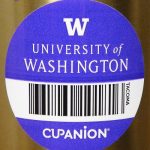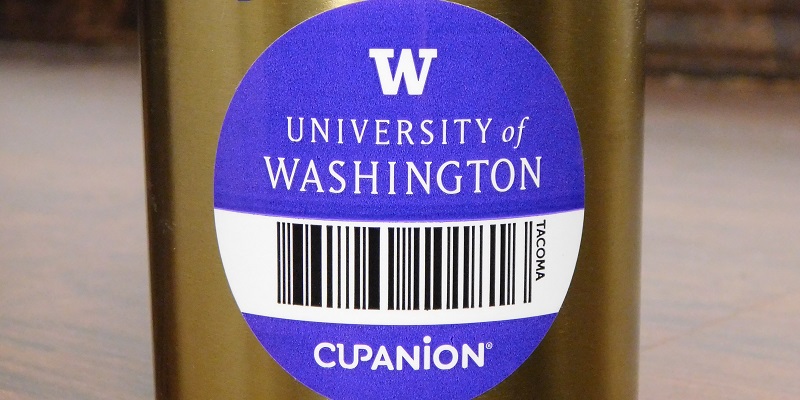UWT partners with Cupanion to increase sustainability
Cupanion, a reusable product company and app, is partnering with the University of Washington to push for a campus wide commitment to sustainability.
Cupanion sells reusable water bottles and has developed an easy to use app for tracking one’s carbon footprint. They have distributed stickers to all UW campuses, which have a barcode on them that students can scan with their phones through the app each time they fill their reusable water bottles. At UWT, you can find the stickers in the University Book Store, library and UWT YMCA center. Users can download the Cupanion app for free from the App Store or Google Play.
Cupanion has also started a campaign called Fill it Forward, where every time a user scans their bottle, Cupanion provides a cup of clean water to someone in need.
The company’s mission statement revolves around inspiring sustainability. Their website states, “We combine technology with sustainability to inspire the world to reuse. Our app bridges the gap between information and reality to help you understand your environmental footprint.”
Raelin Goodwin, UWT sophomore and sustainable development major, has had the app for a few months and now better understands her own environmental impact.
“I don’t use the app all the time, but it serves as a reminder that my actions matter,” Goodwin said.
The app allows users to track the amount of waste they have reduced, emissions saved and how much ocean pollution they have prevented.
“It’s something so simple, but as a whole, we still struggle to make the transition away from plastic,” Goodwin said. “I think the stickers represent our continued efforts, and UWT’s commitment to sustainability on multiple levels.”
The interactive app allows for users to earn badges when they have reached certain milestones, such as the Dino Badge which can be earned when users have prevented 83 cups from ending up in a landfill. Users can also track their own consumption of water through the app.
Keith Harris, professor of sustainable urban development, believes any type of environmental awareness program will benefit UWT.
“I think that any program that helps cultivate environmental awareness about our overextended consumption habits is worthwhile,” Harris said. “Whether it’s an app, a counter on water fountains that shows how many plastic bottles are saved by refilling bottles instead, or discounts at coffee shops for bringing in a reusable mug — these are all important interventions that help make us more reflective and spur us to think about other unexamined habits.”







